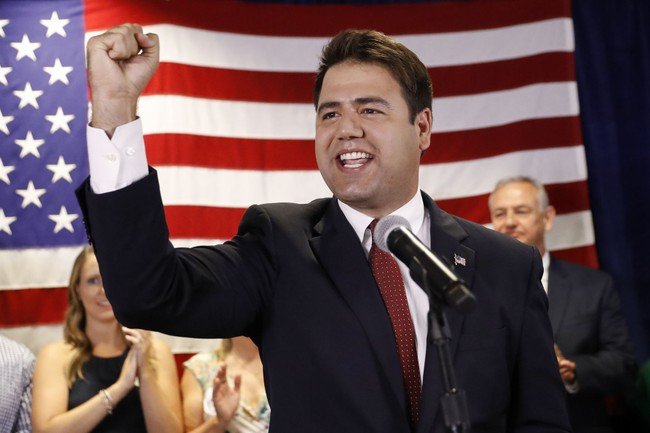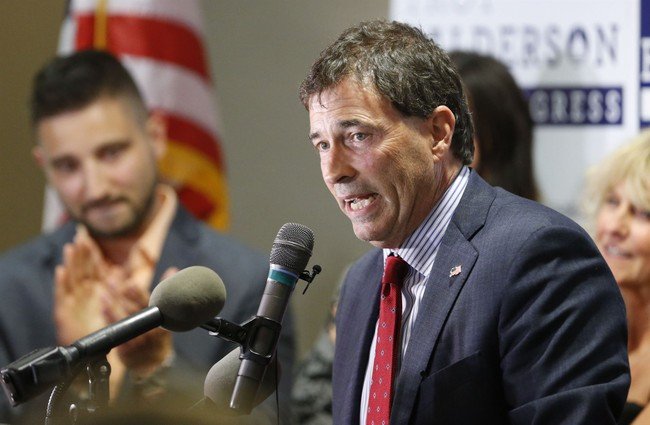When Gov. Mike DeWine proposed novel administrative rules in early 2024 requiring transgender adults to obtain a detailed care plan and medical approval from a bioethicist before “prescribing, initiating, or providing treatment for sex-related conditions,” Ohioans were faced with two questions:
- Why are Ohio Republicans interfering in adult health care decisions?
- Who the hell is a bioethicist?
Although the first question is still complex to answer, the second was a bit easier.
We spoke with Marcie Lambrix, clinical ethicist and principal investigator at MetroHealth’s Center for Biomedical Ethics and senior research associate in the Department of Bioethics at Case Western Reserve University, to learn more about how bioethics works, why it matters, and what LGBTQ+ people in Ohio should be thinking about when it comes to advance directives.
To listen, click the “Play” button below or read our (edited) conversation at the audio link.
In words that even I understand, Marcie, what exactly Is bioethicist?
Marta Lambrix:Bioethics is a branch of medicine that really deals with ethical issues. We know that there are a lot of ethical issues in medicine and healthcare more broadly. So our training is generally either in bioethics or philosophy – or in my case sociology – to lend a hand examine different medical issues and develop recommendations for dealing with those ethical issues.

Tell us why you chose this career path. I imagine you as a kid on the playground explaining to everyone the pros and cons of risky decisions on the seesaw.
[laughs] This is hysterical. I’m a worrier and I like to think about things a lot. So you’re right.
It wasn’t a career plan that I had planned or even thought about. I had done some training in sociology, but it was in healthcare and medical sociology. I ended up in this role in a very unexpected way, really. It happened through COVID. I was doing research at Case Western in the bioethics department. And then when COVID hit, everything got crazy.
As everyone knows, the hospitals were very, very busy, and our department was inundated with consultations. My supervisor said, “Hey, can you help us out and help us with the clinical ethics pager?” I said, “Sure, no problem. I’m always happy to jump in.”
From that point on, I fell in love with the whole role of a clinical ethicist. And so I continued and delved deeper into that role as the chief clinical ethicist at MetroHealth, and I’ve been doing that for a few years now.
Bioethicists really entered the political sphere earlier this year with several policies proposed by Gov. Mike DeWine. How did it feel to have your field so politicized?
Oh my god, that was really frustrating. There is no other group that has been subjected to this, that requires that we create these types of care plans for them as adults. It violates patient autonomy and it goes against any principle of justice. It is just so frustrating and I am being nice about that description.
Well, let’s talk about one area of bioethics that I know we don’t often talk about: dedicated advance care planning initiatives. Let’s explain why this is so essential to the LGBTQ+ community.
So essential, Ken. And thanks for the question.
Advanced care planning in a very straightforward way is thinking about preventative health care and thinking about your wishes if you are unable to communicate them yourself. Let’s say you are incapacitated for any reason, there needs to be someone to act as your surrogate.
Ohio state law has immediate family hierarchy. And for some people, that’s great. It works well, that’s what they want. But for others, maybe not so much.
The queer community would like to have some level of autonomy in who makes these decisions, because not all of our families will know us well enough. Some of us have chosen our families. Some of us would like others to designate who makes these really critical healthcare decisions for us if we are unable to do so.
So I, as someone who is a member of this queer community, want to lend a hand educate and motivate others to think about what we can do to lend a hand preserve and protect our autonomy when it comes to these scary situations where we have to make decisions. So we tried to attend every event we could to reach out to the queer community and get this information out.
I can’t tell you how many times people have said, “Are you kidding me?” when I’ve discussed the hierarchy of next of kin. They’ve said, “He would make my decisions? No, no, no, no. I’m not interested in that. Give me the paper and let me fill it out.”
Give us the next steps that people should know. As someone who doesn’t know the hierarchy of my immediate family, I’m a little nervous right now. Where should I start?
I always emphasize to people that there are so many different advance care planning documents. But the biggest, most essential one is the health care power of attorney. That’s why I suggest people take a few minutes to download one offline and fill it out so that you can provide the name of the person you would like to appoint as your deputy.
Once you have it on file, you can add it to your medical record.
But before you finish this documentary, let’s start talking about what we would like. This is not a nice, edifying conversation to have at a party. But let’s start talking about what we would like. We’ve all heard stories of people who have said, “Oh, I wouldn’t want that. I wouldn’t want to be intubated and put in a long-term care facility for ten months.”
Start having those conversations and then let someone you trust know what you would like. Because it matters and it matters at a time when you can’t speak for yourself.
Marci, all your worries are worth it. Thank you so much for talking to me.
It’s a pleasure. Thank you very much. 🔥
IGNITE THE ACTION
- Check out MetroHealth’s pre-care planning page Here.


